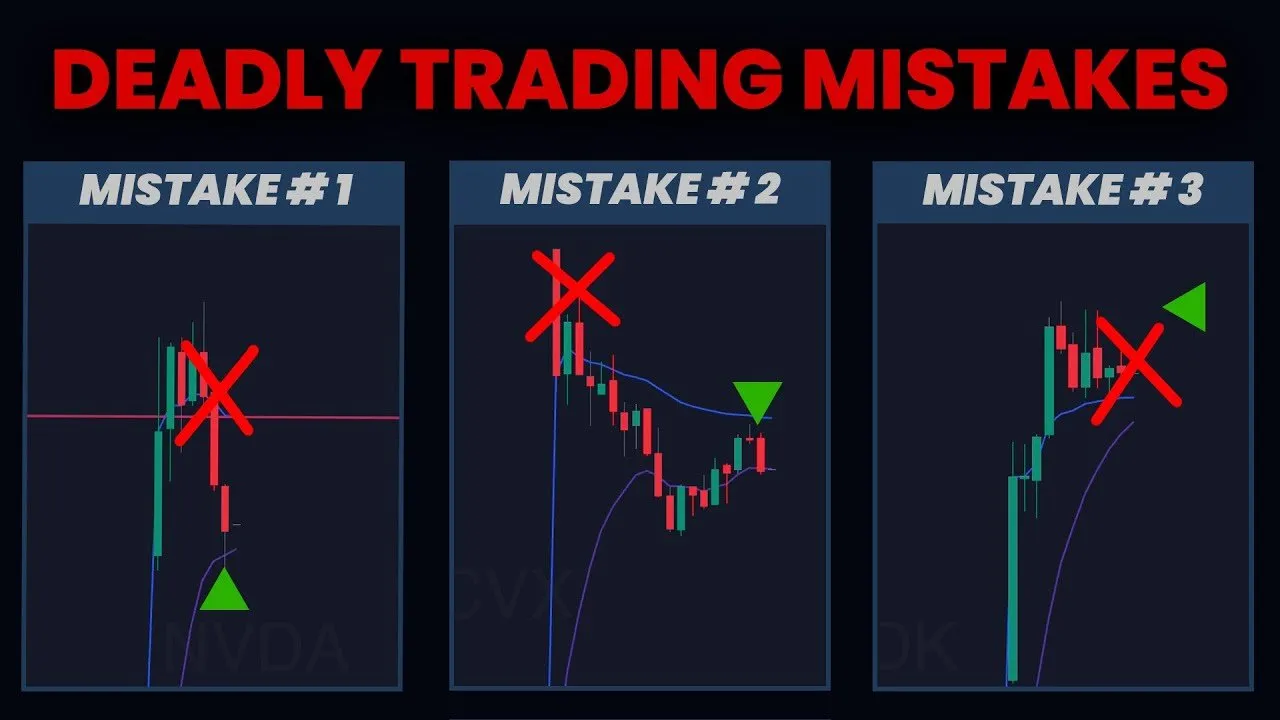Table of Contents
In his first interview since the August 2024 detention that sent shockwaves through the tech world, Durov describes four days of solitary confinement and ongoing legal persecution that threatens the future of private communication.
Key Takeaways
- Durov was arrested at Paris airport without warning and held in solitary confinement for four days in a windowless concrete cell
- French authorities claimed Telegram failed to respond to legal requests, but the company had never received a single legally binding request from France
- Durov remains trapped in France eight months later, unable to see his children or dying mother in Dubai under "judicial control"
- French Senate passed law banning encryption before National Assembly rejected it, while EU proposes continent-wide encryption ban
- Unlike other social media giants, Telegram refuses to extract user data for advertising, achieving profitability through voluntary subscriptions
- The company operates from same Dubai building as French consulate, making arrest particularly unnecessary and vindictive
- Durov doesn't use a phone himself due to privacy concerns and government surveillance capabilities through zero-day vulnerabilities
- France's actions have frightened other tech CEOs from visiting the country, damaging its reputation as a rule-of-law democracy
The Arrest: Democracy's Mask Slips
Pavel Durov's ordeal began on what should have been a routine tourist visit to Paris in August 2024. The billionaire founder of Telegram, who holds French citizenship, was immediately surrounded by police upon landing at Charles de Gaulle airport. Within moments, his phone was confiscated and he was read a list of 16 criminal charges ranging from drug trafficking to organized crime—activities he had never participated in.
"At first I thought there may be some additional security checks because of the Olympics," Durov recalls with characteristic understatement. "I said it's all right. It's France. It's fine." That faith in French democracy would prove tragically misplaced.
For four days, Durov was held in what French authorities carefully avoided calling prison—a seven-square-meter concrete cell with no windows, no pillow, a one-centimeter-thin mattress, and constantly blinking lights. Legally speaking, it wasn't jail. Practically speaking, he was in solitary confinement without communication rights, unable to contact family or lawyers beyond arranging legal representation.
The charges related not to Durov's personal conduct but to alleged criminal activity by some of Telegram's one billion users. French prosecutors claimed the platform failed to cooperate with law enforcement requests, despite the company having established legal processes for exactly such cooperation—processes that other European countries had successfully used for over a year.
The Big Lie: Cooperation That Never Existed
The most damaging aspect of Durov's persecution involves deliberate French misrepresentation of standard law enforcement cooperation. French authorities arrested Durov claiming Telegram refused to provide user identification data when presented with valid court orders. This narrative proved completely false upon examination.
Telegram had established legal compliance procedures under EU Digital Services Act requirements, maintaining offices in Belgium specifically to process law enforcement requests from European authorities. When courts provide properly signed judicial orders requesting IP addresses and phone numbers of criminal suspects, Telegram complies—as do all major social media platforms.
"We've never received a single legally binding legal request coming from France," Durov states definitively. French authorities had simply ignored established legal channels, choosing dramatic arrest over routine diplomatic contact. The French consulate operated from the same Dubai building as Telegram's headquarters, making normal communication trivially easy.
After Durov's arrest, French authorities finally began using proper legal channels and receiving the cooperation they claimed to seek. They then announced publicly that Telegram was "now cooperating," creating the false impression that imprisonment had broken Durov's resistance and forced compliance with surveillance demands.
This calculated deception served dual purposes: undermining Telegram's reputation for protecting user privacy while suggesting that sufficient pressure could force any tech company to surrender encryption keys. Neither implication was accurate, but the damage to public perception was immediate and lasting.
The Encryption War: Backdoors for Everyone
Durov's persecution coincides with intensifying government assaults on encryption technology across the Western world. While imprisoned, the French Senate passed legislation effectively banning encryption by requiring all messaging platforms to implement government backdoors for law enforcement access.
"There is no such thing as an exclusive backdoor," Durov explains. "If you implement the backdoor, technically other actors are able to exploit it and it could be foreign agents, it could be hackers, it could be anyone." Such mandatory vulnerabilities would expose millions of French citizens to surveillance by hostile foreign powers and criminal organizations while providing minimal benefits for legitimate law enforcement.
Criminals would simply migrate to smaller, harder-to-detect applications or use VPN services to hide their communications entirely. Meanwhile, law-abiding citizens would lose fundamental privacy protections essential for democratic society. The French National Assembly ultimately rejected this particular assault on digital rights, but similar proposals continue emerging at both national and European Union levels.
The EU's April 2024 proposal seeks continent-wide encryption backdoors, representing an unprecedented assault on digital privacy rights. No country in human history has successfully banned encryption while maintaining democratic governance, yet European authorities seem determined to achieve this dystopian milestone.
Business Model as Resistance
Telegram's threat to government control stems partly from its business model, which deliberately avoids the data extraction practices that make other platforms complicit in surveillance. While Facebook, Google, and other tech giants profit by harvesting user information for targeted advertising, Telegram achieved profitability through voluntary premium subscriptions and optional services.
"We came up with ways to monetize Telegram without having to abuse people's personal data," Durov explains. The platform crossed one billion monthly users while generating over half a billion dollars in profit without compromising user privacy. This demonstrates that surveillance-based business models represent corporate choice rather than technological necessity.
Traditional social media platforms create detailed psychological profiles of users, tracking browsing habits, social connections, and personal communications to predict and influence behavior. Government agencies can access this treasure trove of personal information through legal requests or intelligence partnerships, making these companies de facto surveillance apparatus.
Telegram's subscription-based model eliminates this vulnerability by never collecting the personal data that governments seek to access. Users pay for premium features voluntarily while maintaining complete control over their personal information and communications.
The Geopolitical Irony: Fleeing Russia for French Prison
Perhaps the most striking aspect of Durov's ordeal involves the complete reversal of expectations regarding authoritarian versus democratic governance. Durov left Russia specifically because Putin's government demanded access to Telegram's user data for political surveillance purposes. He chose exile over compliance, abandoning his homeland to preserve user privacy rights.
"Did you ever get arrested by Putin?" Tucker Carlson asks pointedly. "No," Durov responds, highlighting the profound irony of his situation. The Russian government that drove him into exile never resorted to the arbitrary detention and public humiliation that French authorities employed as standard procedure.
Before arriving in Paris, Durov had visited several countries considered authoritarian by Western standards. Despite Telegram's complete refusal to censor political speech or compromise user privacy, he encountered no legal difficulties whatsoever. Only in democratic France—with its constitutional commitments to liberty, equality, and fraternity—did authorities resort to airport arrests and solitary confinement.
This reversal reflects a broader pattern whereby Western governments increasingly adopt the surveillance and control mechanisms they historically criticized in authoritarian regimes. The tools of oppression remain constant; only the justifications change from fighting political dissent to combating terrorism or protecting children.
Family Consequences: The Human Cost of Digital Resistance
While Durov maintains his characteristic emotional restraint when discussing legal proceedings, he becomes visibly affected when describing impacts on his family. Eight months after his arrest, he remains trapped in France under "judicial control"—unable to travel freely to Dubai where his children live and his mother is dying.
"I have kids in Dubai that I am unable to not just see I'm unable to legally take care of them by signing certain documents I have to sign," he explains. "I also have this company to run. We have a billion users. It's it's it's it's important and I am doing it remotely now but it's not as efficient."
The emotional manipulation appears deliberate, designed to pressure Durov into compliance by threatening what matters most to him. French authorities could easily have resolved any legitimate legal concerns through diplomatic channels, but chose prolonged family separation as a pressure tactic.
His elderly mother's grave illness adds particular cruelty to this persecution. Durov cannot visit her bedside or provide necessary care because French authorities refuse to lift travel restrictions despite his obvious lack of flight risk as a billionaire tech executive with global responsibilities.
Soviet Parallels: The Interpreter's Warning
One of the most chilling moments in Durov's account involves an interpreter present during his police interrogation—another Soviet emigrant who had fled authoritarian rule seeking Western freedom. After two days observing French legal procedures, she made a stunning declaration in front of assembled officials.
"I left the Soviet Union hoping I would be in a country with freedoms," she announced. "And it seems now that the Soviet Union has caught up with me."
This spontaneous comparison from someone who experienced both systems carries profound implications. People who lived under communist rule possess unique perspective on recognizing authoritarian patterns regardless of their democratic packaging. When they identify familiar warning signs in Western governance, those observations deserve serious consideration.
The interpreter's comment reflects growing recognition among Eastern European immigrants that EU institutions increasingly resemble the Soviet structures they thought they had escaped. Unelected bureaucrats in Brussels make binding decisions for member nations, while dissent from approved narratives triggers punishment rather than debate.
Technical Reality: The Encryption Arms Race
As both Telegram's founder and a sophisticated engineer, Durov provides unique insight into the technical realities of digital privacy. When pressed about quantum computing's potential to break current encryption standards, he acknowledges the ongoing arms race between codemakers and codebreakers.
"Encryption will have to change," he confirms. "The tools to decrypt become stronger and then the tools to encrypt become stronger." However, the fundamental challenge involves asymmetric computing power, where state actors possess virtually unlimited resources compared to individual users' devices.
More concerning than theoretical quantum threats are present-day government capabilities through "zero-day" vulnerabilities—security flaws in operating systems that intelligence agencies discover and exploit while keeping them secret from manufacturers and users. Tools like Pegasus spyware can compromise any smartphone without user awareness, rendering encryption irrelevant if the endpoint is compromised.
Durov himself was targeted by Pegasus surveillance eight years ago, according to leaked reports. This personal experience with state-sponsored hacking explains his unusual decision to avoid carrying a mobile phone entirely—a choice that seems eccentric until one understands the technical realities of government surveillance capabilities.
The Chilling Effect: Tech CEOs Afraid of France
Durov's treatment has created a chilling effect throughout the global technology industry, with executives now questioning the safety of traveling to France or other EU countries. Several tech company CEOs have privately asked Durov whether France remains safe for business visitors, reflecting deep concern about arbitrary government action.
"The CEOs of the smaller companies that don't have a billion users are even more worried," Durov observes. "They say look they did this to you and you you're very well known and the company of your profile is you know should be treated in in certainly in certain different way. So, and I'm running a small startup. A friend of mine would say, 'I'm scared to come.'"
This fear represents a massive strategic failure for France and the broader European Union. Technology companies drive economic growth and innovation in the 21st century, but they require legal predictability and respect for basic rights to operate effectively. Arbitrary detention of executives for political purposes destroys the trust necessary for business relationships.
The irony deepens when considering that many executives report feeling safer visiting countries traditionally labeled as authoritarian or undemocratic. Durov notes that he had "zero issues whatsoever" in several such countries before arriving in France, despite Telegram's refusal to compromise on privacy protections.
The Broader Pattern: Democracy's Authoritarian Turn
Durov's persecution represents one data point in a broader pattern of Western governments adopting increasingly authoritarian approaches to dissent and privacy rights. The tools of oppression remain consistent across political systems—arbitrary detention, family separation, public humiliation, and economic pressure—while the justifications evolve to match contemporary concerns.
The Digital Services Act and similar legislation create legal frameworks for continent-wide censorship under the guise of combating "disinformation" or protecting children. These laws grant government officials sweeping power to determine acceptable speech while imposing crushing compliance costs that favor large corporations over independent platforms.
Meanwhile, ordinary citizens face increasing surveillance and control over their digital communications. Banking systems monitor transactions for suspicious patterns, social media platforms flag unapproved content, and messaging applications face pressure to eliminate encryption protections.
The cumulative effect transforms democratic societies into surveillance states where privacy becomes a privilege available only to those with sufficient technical expertise and resources to evade detection. This represents the opposite of democratic ideals, where individual rights should be protected from government overreach rather than subject to bureaucratic approval.
Common Questions
Q: Why did France arrest Durov instead of using normal legal channels?
A: France wanted to intimidate him and create a public spectacle, despite having easy access to him through established diplomatic and business channels.
Q: Is Telegram actually more secure than other messaging platforms?
A: Yes, because it doesn't harvest user data for advertising and has refused government demands for encryption backdoors that would compromise security for everyone.
Q: Can governments really break encryption with quantum computing?
A: Eventually, but encryption technology evolves too. The bigger threat is government exploitation of software vulnerabilities in phones and computers.
Q: Why don't other tech CEOs speak out about Durov's treatment?
A: They're afraid of becoming targets themselves, especially smaller companies without Telegram's resources and global profile.
Q: Will this affect where tech companies choose to operate?
A: Yes, many executives now view France and potentially other EU countries as unsafe for business operations that prioritize user privacy.
Durov's ongoing persecution serves as a warning about the fragility of digital rights in supposedly democratic societies. When governments can arbitrarily detain tech executives for protecting user privacy, the foundations of democratic governance and individual liberty come under direct assault.





